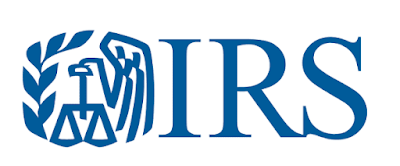Saturday, October 31, 2015
Barron's: As Sunspots Fade, Will Crop Yields Fall?
Friday, October 30, 2015
TheStreet: Why Dinner's About to Start Eating More of Your Wallet
New York (TheStreet) -- If food prices start taking a bigger bite out of your wallet in the near future, you can blame it on Mother Nature.
Thursday, October 29, 2015
TheStreet: Why Financial Crises Aren't Such a Bad Thing for Your Wallet
Wednesday, October 28, 2015
OZY: The Real Costs of a Government Shutdown
Tuesday, October 27, 2015
U.S. News: 6 Reasons to be Bullish on Stocks
Believe it or not, there are still reasons to be bullish on stocks, and not just because pundits keep showing their angst on business TV. (They are often wrong.) Here are some key points for investors to consider.
World economic growth should improve. Forget the idea that the world economy is about to come to a standstill because China hit a bump in the road. Growth is picking up, says Jeffrey Kleintop, chief global investment strategist at Charles Schwab & Co. in Boston.
Read more here.
Monday, October 26, 2015
TheStreet: 5 Reasons the Fed's Economic Progress Is Painfully Slow
NEW YORK (TheStreet) -- It should be clear by now that the Federal Reserve is making slow progress toward its dual goals of keeping prices stable and achieving full employment.
Here are five of the biggest reasons the central bank, whose monetary policy committee is meeting this week, is falling short:
Forbes: How To Be The Worst Boss Possible -- Part 1
Part one of a continuing series. If you aren’t cut out for management, why be just mediocre when with a little more effort you can be truly awful?
Here are some tips.
Thursday, October 22, 2015
TheStreet: Is the Fed Putting the 'Chapel of Love' Out of Business?
"A higher housing-cost burden in a county is associated with a lower marriage rate," according to a paper from the Eastern Economic Journal titled " Bricks, Mortar, and Wedding Bells: Does the Cost of Housing Affect the Marriage Rate in the U.S.?" Read more here.
Tuesday, October 20, 2015
TheStreet: Yes, the Dollar Can Buy Love -- And It's About to Buy Even More
U.S. News & World Report: How to Buy Stocks When the Dollar is Strong
By SIMON CONSTABLE
The greenback is looking strong, but there's no reason to believe that it can't get even stronger. If it does, then it will have an impact on your investments. Here's why it matters and some key things you need to know.
"It's the kind of thing that Americans don't think about much unless they travel overseas," says Eddy Elfenbein, a Washington, D.C.-based private investor and author of the influential Crossing Wall Street blog. But when the dollar is strong, it does change the way various types of investments perform. "It's like putting a magnet near a compass," he says. Read more here.
Wednesday, October 14, 2015
OZY: Can Investors Trust Wall Street's New Ticker Tape?
It wasn’t long ago that IBM Watson emerged as a new kind of Jeopardy! champ in a battle of knowledge against two human quiz whizzes and proved what had long eluded scientists — that computers really could emulate human intelligence. Now one of the brains behind that same technology is playing a part in trying to shape a more democratic Wall Street.
Tuesday, October 13, 2015
U.S. News & World Report: Why There's No Better Time to Buy Commodities
Monday, October 12, 2015
Forbes: Quit With No Net? Hard Work But Worth It -- Tess Vigeland
Quitting the job that’s killing your soul! It’s one of those seemingly ever present fantasies of office workers. But to quit without a net, that’s unnerving to the vast majority of people. Yet it’s what long time radio host Tess Vigeland did. She recently wrote a book about her experience: Leap: Leaving a Job with No Plan B to Find the Career and Life You Really Want.
Forbes: Ten Money Tasks To Get Done By Thanksgiving
Forbes: Nobel Economist Deaton --Trade Not Aid Makes You Rich
By SIMON CONSTABLE
Congratulations to the Nobel prize committee for actually awarding a free trade advocate the prize for economics. That view that trade makes us richer, along with bare knuckle free markets, has been somewhat quiet in the field of late as central planners emerged from their closets during the financial crisis. That’s why it is extra special that the new economics Nobel laureate is canny Scotsman Angus Deaton. Read more here.
Thursday, October 8, 2015
Forbes: @StockCats Says Fed Bubble Biggest Problem Facing StockMarket
Read more here.
Tuesday, October 6, 2015
U.S. News & World Report: How Global Conflict Can Boost Your Portfolio
OZY: The Sad Truth About Major Energy Finds
Photo by Tim Evanson, CC BY-SA 2.0, via Wikimedia Commons
Monday, October 5, 2015
WSJ: What Is the Buyback Window?
WSJ: Unfriendly Tax-Friendly Funds
By SIMON CONSTABLE
Here’s hard news about mutual funds that are designed to minimize tax burdens: The amount they save investors is often less than the extra fees investors pay the funds themselves.
“The performance of these funds is really quite abysmal,” says David Nanigian, a professor of investments at the Richard D. Irwin Graduate School at the American College of Financial Services in Bryn Mawr, Pa., and one of the authors of a report titled “Is Your Tax-Managed Fund Manager Hiding in the Closet?” published in the Fall 2015 edition of the Journal of Wealth Management. The other authors are Dale Domian and Philip Gibson, professors at York University in Toronto and Winthrop University in Rock Hill, S.C., respectively. Read more here.
Saturday, October 3, 2015
Barron's: Milk Prices Likely to Rise in 2016
Thursday, October 1, 2015
TheStreet: Obamacare Actually Isn't All That Affordable -- Unless You're Broke
NEW YORK (TheStreet) -- It's time for the Affordable Care Act to join a long list of oxymorons. Why? Because rather like "military intelligence," "cat proof," "government organization," and "simple calculus," the law better known as Obamacare turns out to be an inherent contradiction. For a sizeable part of the population, anyway.
The ACA is just not affordable to a big chunk of those it was most meant to serve: The previously uninsured. In fact, many are worse off than before, according to a new study. That fact could also unravel part of the program's foundation, which could be a problem for healthcare insurers.
Read more here.









